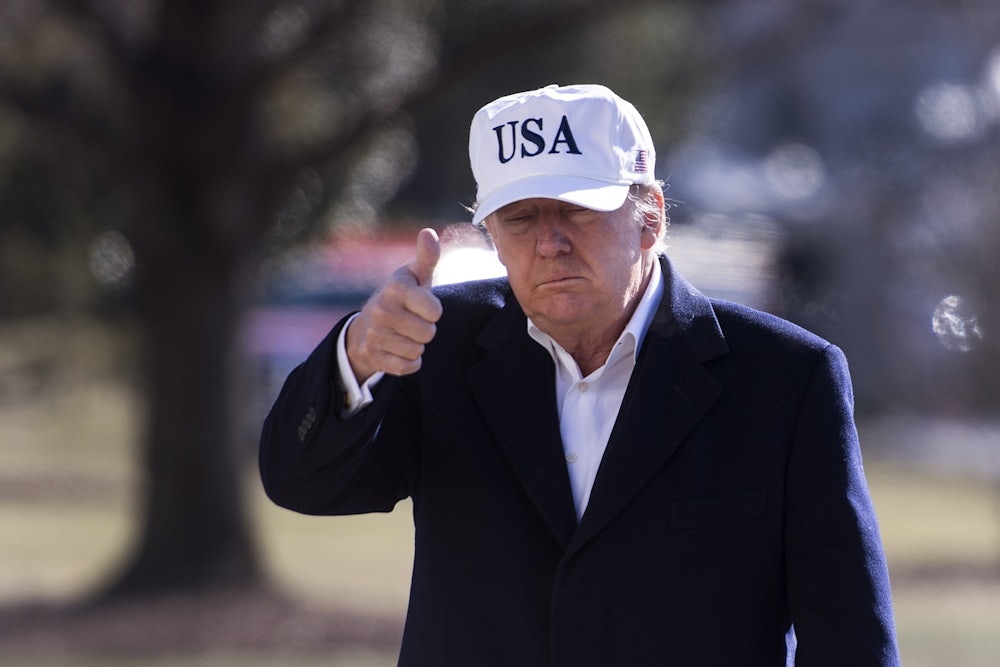NBC News reports that Trump’s lawyers and FBI investigators are in “preliminary talks” about a potential interview between the president and the special counsel. These talks really are in the earliest stages. NBC isn’t suggesting that Mueller’s office has asked for a formal interview, just that Trump’s lawyers are anticipating that such a request will be made. Trump’s legal team “is seeking clarification on whether the president would be interviewed directly by Mueller, as well as the legal standard for when a president can be interviewed, the location of a possible interview, the topics and the duration.”
But what’s most notable about the NBC report is that Trump’s lawyers are doing what they can to limit the scope of such an interview:
[T]he president’s legal team is discussing a range of potential options for the format, including written responses to questions in lieu of a formal sit-down...
[The president’s team is also seeking potential compromises that could avoid an interview altogether...
In addition to the possibility of suggesting the president submit written responses in place of an interview, a second person familiar with the president’s legal strategy said another possibility being contemplated was an affidavit signed by the president affirming he was innocent of any wrongdoing and denying any collusion. It was not clear what such an affidavit might state regarding the president’s firing of former FBI Director James Comey in May 2017 at a time when Comey was leading the Russia probe.
That Trump’s lawyers would try to limit his exposure is not surprising in and of itself. But it’s notable because it suggests that there is some anxiety that Trump, who has a history of lying under oath, would perjure himself. After all, Bill Clinton allegedly lying about his affair with Monica Lewinsky in a sworn deposition was what led to his impeachment.
Of course, given the scope of the Mueller investigation—which now may be looking into Trump’s finances, in addition to possible obstruction of justice—it’s unlikely that a signed affidavit denying collusion would be enough to wind down the probe.
